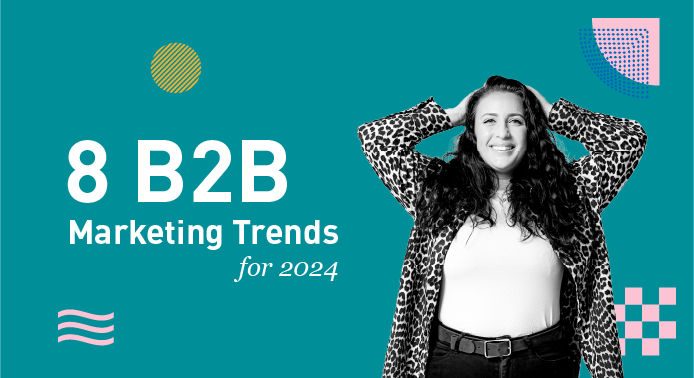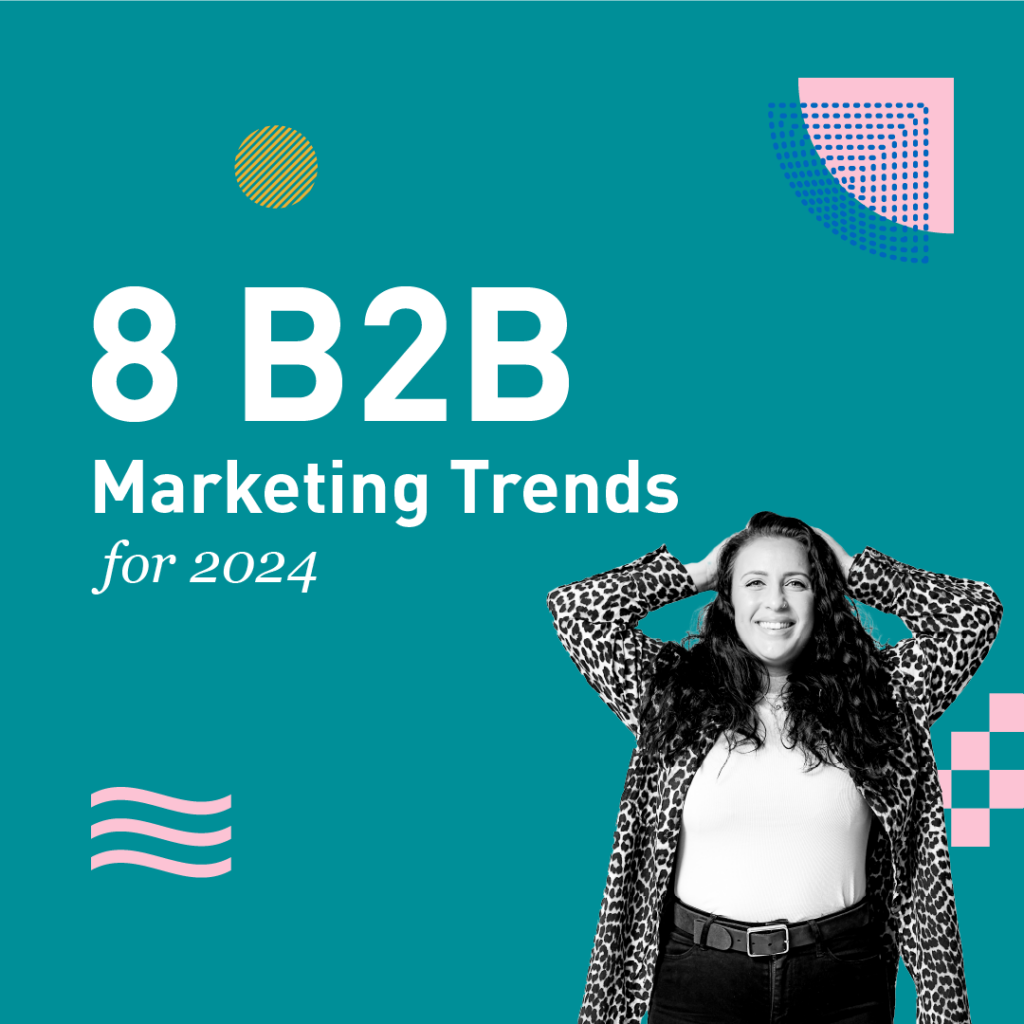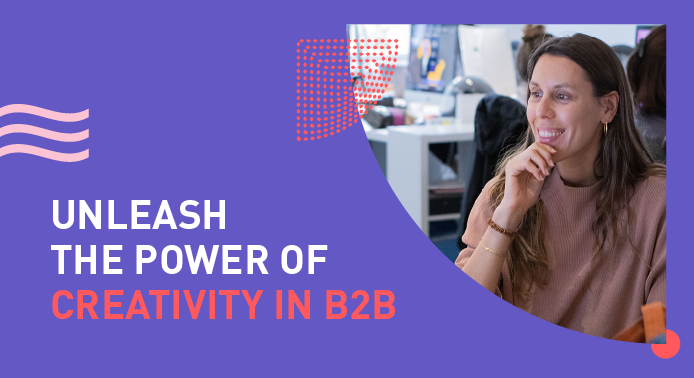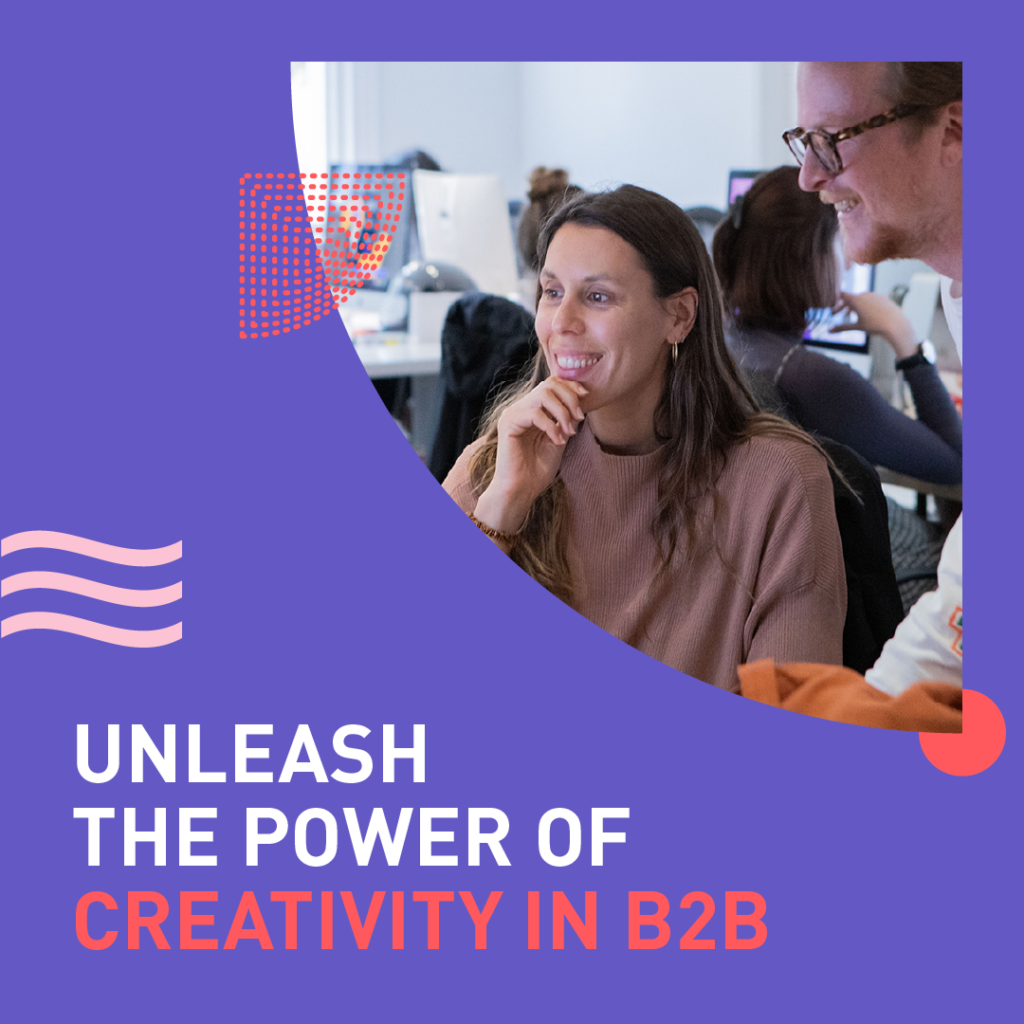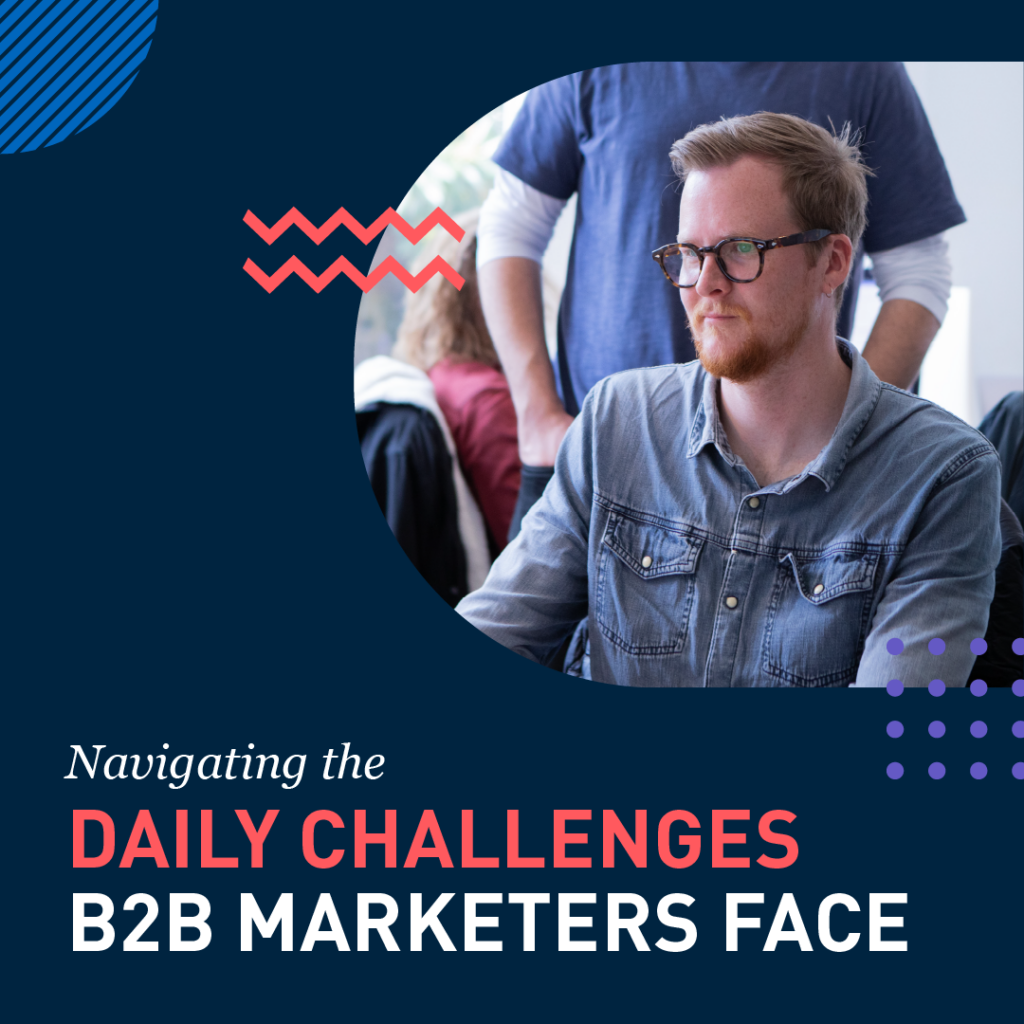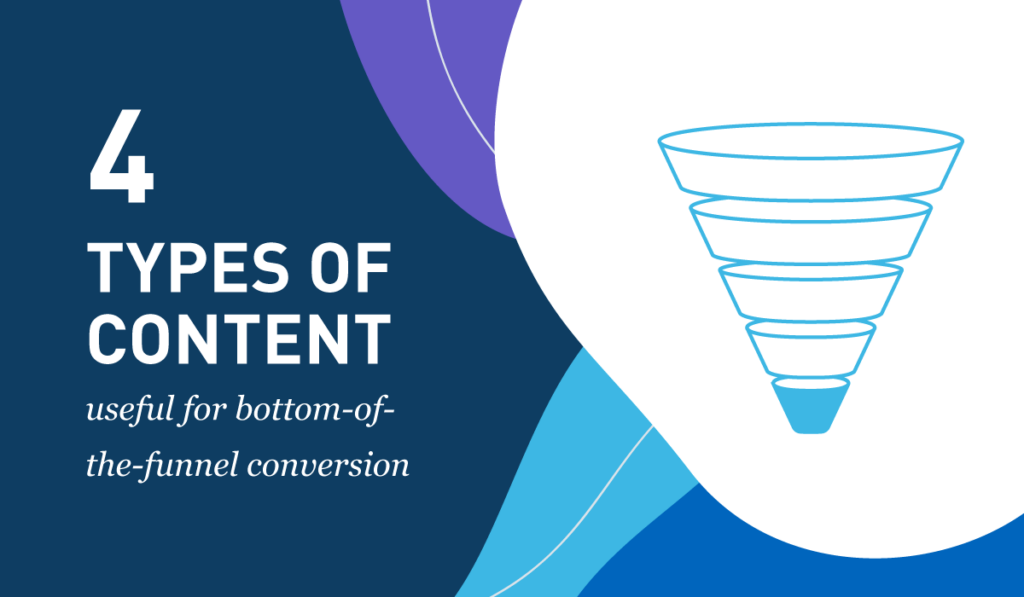
If you’re curious about which types of content are most effective for converting leads to sales, you’ve come to the right place! But before we dive into the specifics, let’s define what we mean by ‘bottom of the funnel,’ or ‘BOFU’ for short.
BOFU content is the last step in the sales funnel, where leads are converted into paying customers. Without effective BOFU (bottom-of-funnel) content, you may lose out on potential customers who are on the fence about making a purchase.
So, if you want to increase your conversion rate and generate more sales, keep reading to discover the best types of content to use at the bottom of the funnel.

Start by knowing who your ideal customers are
When it comes to BOFU content, there are a lot of different options out there.
You may have heard of some of the most popular types, like product demos or trials that let potential customers test out a product or service before buying.
Or maybe you’ve seen customer case studies that highlight the benefits of a product or service in real-life situations.
Another common type of BOFU content is comparison guides that show how a product or service stacks up against the competition.
And let’s not forget about limited-time offers or promotions that create a sense of urgency and push potential customers to make a decision.
Read more: Building a full funnel content marketing campaign for Cisco.
Ask yourself: What features does my product offer that set it apart from the competition?
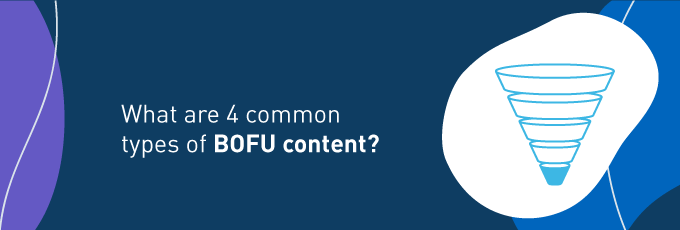
What are 4 common types of BOFU content?
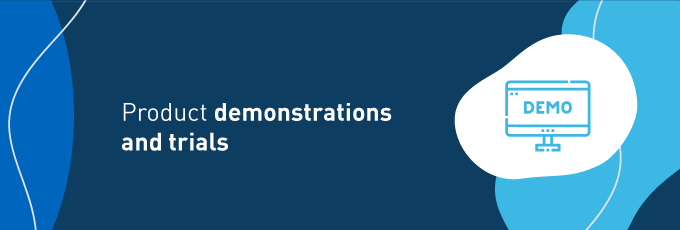
1. Product demonstrations and trials
It may be helpful to ask yourself this question:
What features does your product offer that set it apart from your competition?
Customers are interested in understanding the reasons they should choose your product over others. The more your product stands out, the more likely you’ll gain conversions.
Great product demonstration content includes video tutorials, free trials, and live demos. These can be created in different formats, such as webinars, virtual events, or in-person presentations.
By offering your prospects a chance to experience your product firsthand, you’ll show them what it’s like to be a customer and get a sense of what to expect.

2. Customer case studies
Customer case studies demonstrate the value of your product or service. When potential customers see real-life examples, this social proof can help persuade them to purchase.
It’s human nature to want to buy something that’s proven to be worth the investment. Therefore, showcasing statistics and data in your case studies can reinforce your value.

Seek out customers who’ll say great things about you
Collecting and showcasing customer testimonials and reviews can be done in various ways such as through customer feedback forms, social media, or third-party review platforms.
You could gather social proof through interviews with customers, video testimonials, or written case studies with detailed data and metrics.
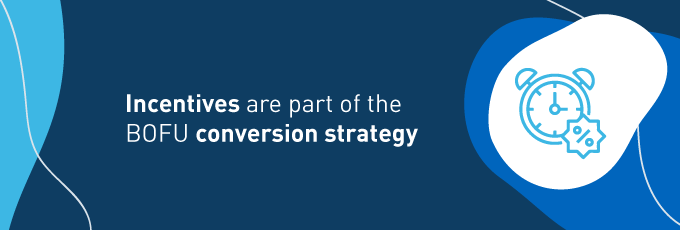
3. Incentives are part of the BOFU conversion strategy
BOFU offers and incentives can be used to encourage prospects to make a purchase decision. These can include discounts, limited-time offers, free trials, or exclusive deals.
Essentially, offering a discount is a powerful way to encourage potential customers to convert, especially when they already see the value in what they’re buying.
This way, you’ll gain more views and conversions and people will start talking more about you.

4. Make a call-to-action!
When it comes to bottom-of-funnel approaches, combining call-to-actions (CTAs) with incentives can work amazingly well. If your main objective is to quickly grab your customer’s attention and encourage them to make a purchase, CTAs are your go-to.
Next, let’s consider some best practices useful for converting at the bottom of the funnel.

Get your designer on track with the visuals
Visual elements play an important role in BOFU content as they can help grab and hold the prospect’s attention.
Here’s our two cents:
- Use high-quality images and videos that showcase your product/service in action
- Incorporate graphics and infographics to illustrate key points and data
- Use clear, easy-to-read fonts and formatting to make content easy to scan and digest.

Be clear and concise
When creating BOFU content, it’s important to be clear and concise in your messaging. This helps your prospects understand the value of your product/service and what action they need to take next. Don’t forget to use blog posts to provide value for your customers. You can use them to showcase important product features or answer common questions, which can help increase conversions too!
Once you’ve created your content for bottom-of-the-funnel, it’s important to track its performance to see how well it’s converting leads into customers.
1. Conversion rate: This measures the percentage of your leads who take the desired action, such as signing up for a free trial or requesting a consultation. A high conversion rate indicates that your content is effectively convincing prospects to move forward in the buying process.
2. Bounce rate: This metric measures how long users spend on your content page. A longer time on a page could indicate that they are engaged with the content and find it useful.
3. Click-through rate: This measures the percentage of prospects who click through to the next stage in the buying process. A high click-through rate suggests that your content is compelling enough to motivate prospects to take the next step.
It is important to remember that while the bottom-of-the-funnel conversion stage is crucial, you cannot neglect the other stages, such as the top-of-the-funnel or middle-of-The-funnel. It all comes in stages for a reason, so start at the top before you make your way down.
If conversion is a pain point for you, connect with a Melon today and let our team of content marketers assist you in your full funnel content strategy that will surely convert.

